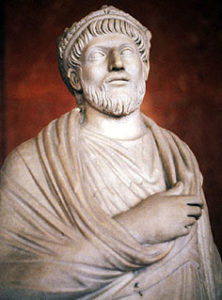 I read an article the other day about atheists in the Philippines trying to do good works to convert people to atheism.
I read an article the other day about atheists in the Philippines trying to do good works to convert people to atheism.
They admit they are copying what they have (wrongly) interpreted as a strategy Christians have successfully used in the past.
Interestingly, this is not the first time a concerted effort has been made to copy Christian conduct for a non-Christian purpose. It failed in the past, and it will fail again for one very good reason.
In 312AD Constantine the Great became the first Christian Roman emperor, ending nearly three centuries of state sponsored persecution against the Christians. What many people don’t realize is Constantine’s successor, following the rule of Constantine’s sons, was “Julian the Apostate.” Julian the Apostate, rightly named, attempted to reverse Constantine’s policies regarding Christians and Christianity.
Julian re-established paganism as the state religion, reopened pagan temples, confiscated church property, prohibited Christians from teaching, and allowed heretics who had been exiled to return in an effort to foster schism within the church. Julian even attempted to rebuild the Jewish temple in Jerusalem to get back at the Christians. Julian’s strategy was to eradicate Christianity, particularly from the governing class, in the empire.
Julian noticed how Christians’ charitable acts attracted pagans to Christianity. Julian wrote, “These impious Galileans not only feed their own poor, but ours also; welcoming them into their agapae, they attract them, as children are attracted, with cakes.” So, Julian, much like the atheists in the Philippines, attempted a similar strategy by engaging in state sponsored acts of charity in the name of paganism.
It failed to have any significant effect. And, when Julian died, succumbing to injuries inflicted at the tip of a Persian spear, his dying words were, “You have won, Galilean.”
Julian’s charitable “strategy” failed for the same reason the Philippine atheists strategy will fail: he wrongly saw Christian charity and love as a strategy rather than a signpost.
Jesus said Christians should shine before men in such a way that men will see Christians’ good works and glorify God the Father. Matthew 5:16. In other words, Christian good works are not supposed to draw people to church, or Christianity, but to God. Christian love and charity are manifestations of the character of God, not a marketing strategy. Julian’s pagan charity did not manifest the character of a god, nor was it designed to. It was an advertising ploy, and even people in the fourth century knew when they were being solicited.
The Philippine atheists are destined to fail for the same reasons. Are they trying to show how generally good the human spirit is by manifesting good works? People are not stupid, they know what is inside of them, and they know when they are being sold. GS
